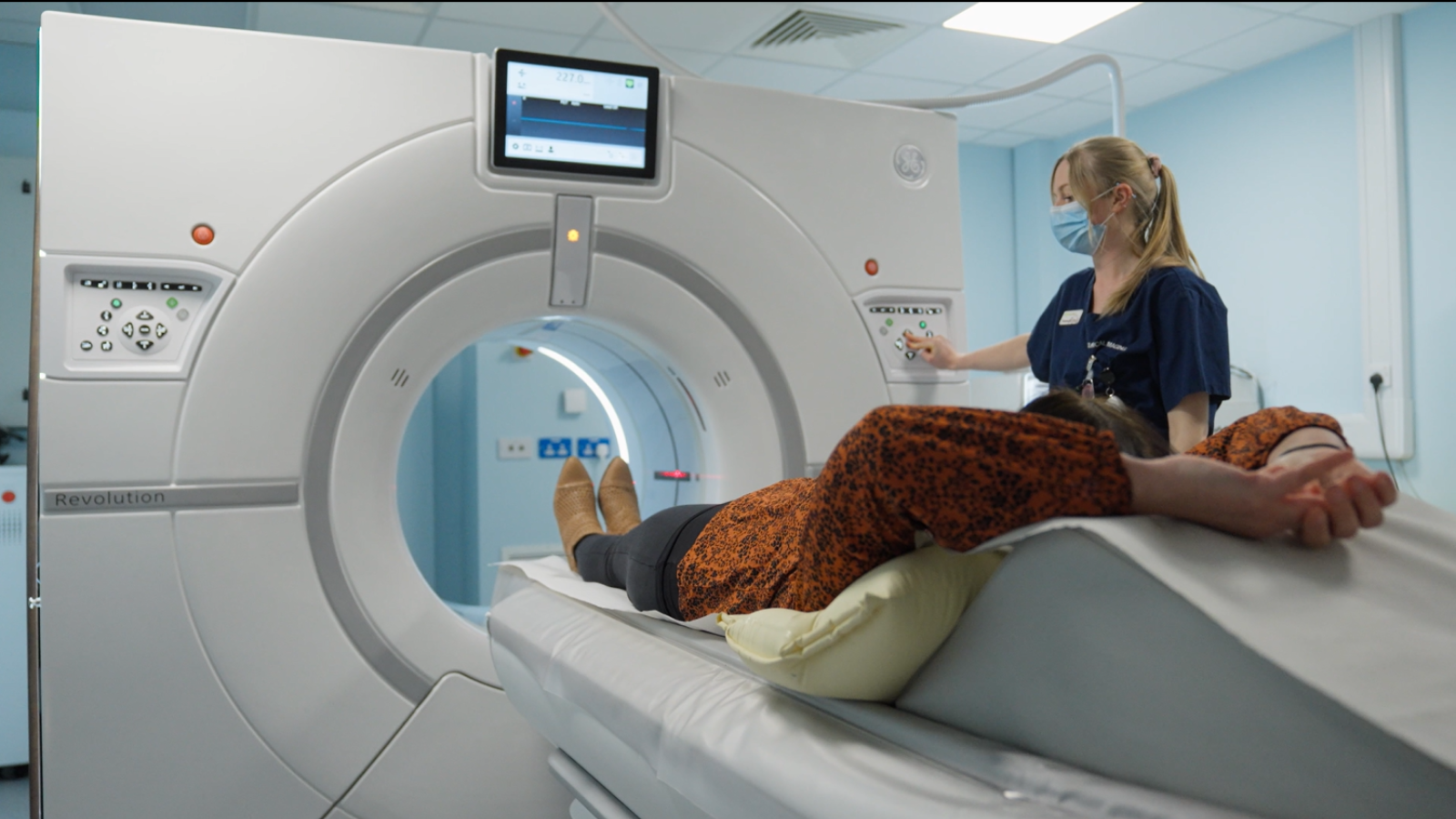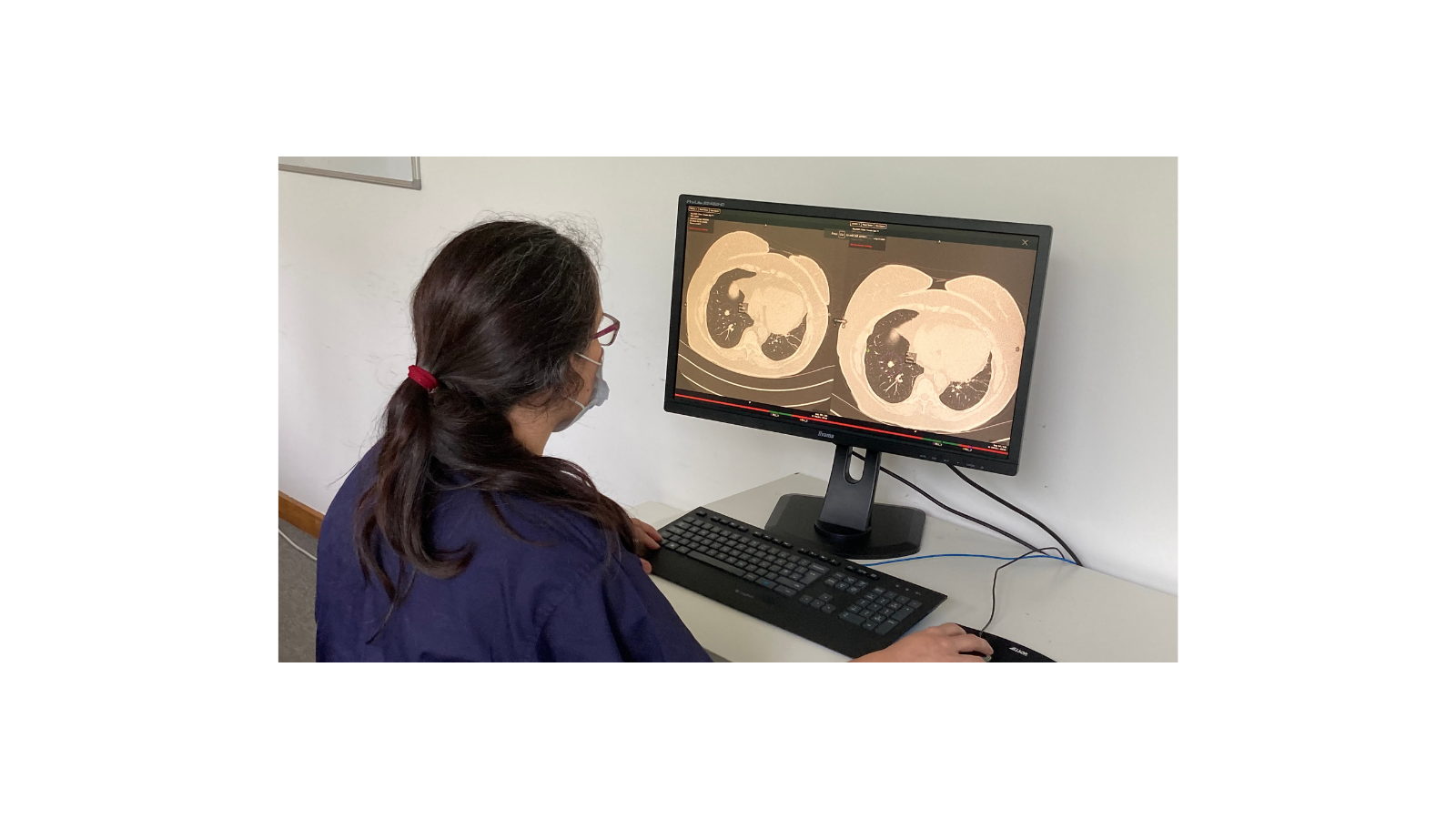Optellum receives FDA clearance for Virtual Nodule Clinic
March 24, 2021
DART partner Optellum receives FDA clearance for the world’s first AI-powered clinical decision support software for early lung cancer diagnosis
Virtual Nodule Clinic empowers clinicians to make optimal clinical decisions in early-stage lung cancer diagnosis and is now commercially available in the United States.
DART partner Optellum, a lung health company aiming to redefine early diagnosis and treatment of lung disease, has received clearance from the FDA for its Virtual Nodule Clinic.
This revolutionary product is an AI-powered clinical decision support software for pulmonologists and radiologists managing patients with small lesions in the lungs – nodules – that could represent early-stage lung cancer. This is the first such application of AI decision support for early lung cancer diagnosis cleared by the FDA.
Lung cancer kills more people than any other cancer. The current five-year survival rate is an abysmal 20%, primarily due to the majority of patients being diagnosed after symptoms have appeared and the disease has progressed to an advanced stage (Stage III or IV).
By comparison, the survival rate for small tumours treated at Stage IA is up to 90%.
“This clearance will ensure clinicians have the clinical decision support they need to diagnose and treat lung cancer at the earliest possible stage, harnessing the power of physicians and AI working together – to the benefit of patients. Our goal at Optellum is to redefine early diagnosis and treatment of lung cancer, and this FDA clearance is the first step on that journey. We look forward to empowering clinicians in every hospital, from our current customers at academic medical centres to local community hospitals, to offer patients with lung cancer and other deadly lung diseases the most optimal diagnosis and treatment.”
Optellum’s CEO Václav Potěšil
Up to two million US patients a year are identified as having lung nodules through chest CT scans. Current guidelines mandate follow-up over one to two years to determine whether a nodule is cancerous. However, over 60% of these patients do not receive guideline-recommended follow-ups, severely limiting opportunities for early intervention and treatment.
Patients who do receive recommended follow-up often require multiple imaging scans and biopsies, and sometimes unnecessary invasive procedures including surgical biopsies and lung resections, before arriving at a definite diagnosis.
Virtual Nodule Clinic
Optellum’s Virtual Nodule Clinic is designed to solve this problem by enabling pulmonologists to identify and track at-risk patients with suspicious lung nodules and make optimal clinical management decisions for those patients. The software features a clinically validated Lung Cancer Prediction (LCP) score designed to empower clinicians to more accurately and consistently evaluate lung cancer risk and make more optimal clinical decisions that could save more patient lives.
Optellum’s LCP score is powered by the world’s first FDA-cleared imaging AI/”Radiomics”-based digital biomarker for lung cancer. The score is computed from full patterns of 3D pixels in standard images captured by Computed Tomography (CT) scanners, which are already available and the standard of care in every modern hospital.
Physician use of Virtual Nodule Clinic is shown to improve diagnostic accuracy and clinical decision-making. In the clinical study which underpins the FDA clearance, all readers in the study, which included pulmonologists and radiologists of various levels of expertise, from generalists to experts, showed a statistically significant improvement in their accuracy for diagnosing lung nodules when using the Optellum software.
Optellum is a commercial-stage lung health company providing Artificial Intelligence decision support software that assists physicians in early diagnosis and optimal treatment for their patients. The company was founded so that every lung disease patient is diagnosed and treated at the earliest possible stage when chances of cure are the highest. Optellum has headquarters at the Oxford Centre for Innovation in Oxford, United Kingdom and a US office at the Texas Medical Center in Houston, TX.
“Congratulations to all the team at Optellum on the news of the FDA approval for the Virtual Nodule Clinic. This is a huge milestone and is the first FDA approved AI solution for enhancing lung cancer diagnosis. NCIMI look forward to working with the team to further develop Optellum’s solutions for lung health, with impact for the NHS and global patient communities.”
Dr Claire Bloomfield, NCIMI CEO
Optellum and DART
Optellum will lead and deliver DART’s lung cancer AI model validation work by providing AI and technical expertise and will collaborate with Roche on the integration of blood biomarkers.
“DART is pleased to have the knowledge and support of Optellum in making a real improvement to the early identification, leading to earlier treatment of lung cancer, which is good news for patients and the NHS”
Professor Fergus Gleeson, DART Chief Investigator
The Optellum Virtual Nodule Clinic AI model is being trialled on Lung Cancer Screening (LCS) data, and an automated workflow is being developed to support implementation into clinical practice.
LCS project objectives
- Model development and integration: where the existing algorithm is integrated into the LCS workflow to include automated detection and quantification.
- Integration of clinical risk parameters and model calibration for UK lung screening population. The model will be extended by including the clinical risk parameters and Optellum will calibrate the resulting model for the UK LCS population to identify the threshold values entry into the various pathways.
- Clinical Data Collection and Prospective Validation: the system developed earlier in the work package will be rolled out to the participating trusts and will undergo prospective clinical and health economic validation for every subsequent screening patient. Roche Diagnostics will work to ensure the enablement of the data models for point-of-care software deployment and utilization.
AI algorithm outputs are being validated using the same trial protocol currently in use for testing Optellum’s algorithm in an incidental pulmonary nodule NHS setting (IDEAL). This will lead to easy adoption into the NHS if the trials are successful.
Active data enrichment by learning what to annotate in digital pathology
March 11, 2024
Abstract: Our work aims to link pathology with radiology with the goal to improve the early detection of lung cancer.…

Unlocking the future of lung cancer screening: How DART is redefining early diagnosis
October 23, 2023

Comparing imaging techniques to diagnose lung cancer – looking for advisors
May 25, 2023

CanPredict: Lung cancer risk prediction
April 13, 2023